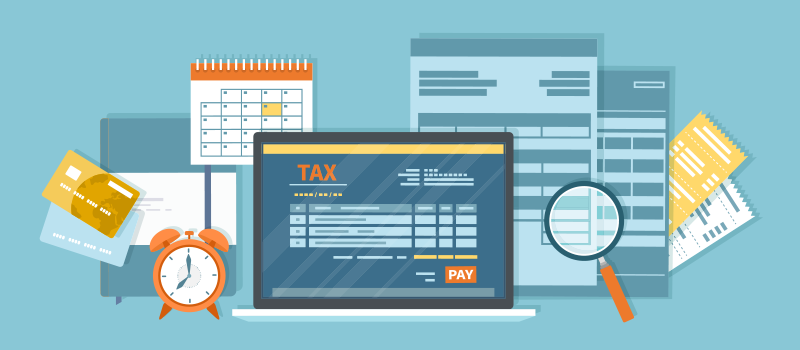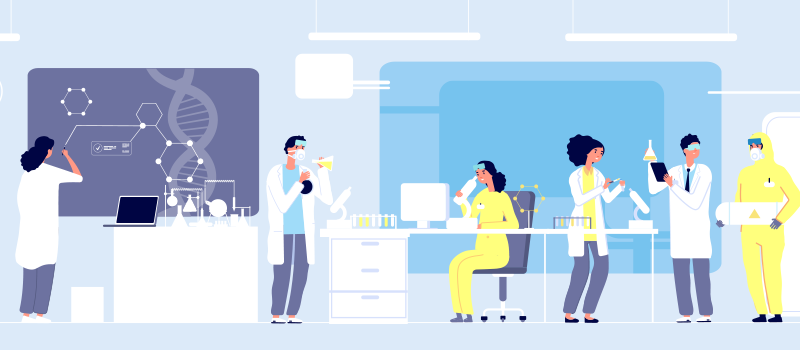What’s the Buzz
The Bee Healthy Blog
Pharmacy Technician vs. Pharmacist: What's the Difference?

If you’re interested in a career in healthcare but don’t have the inclination to become a physician, many other options are available. Two career paths that allow you to work in healthcare with less upfront investment of time and money are the professions of pharmacist and pharmacy technician.
Pharmacists and pharmacy technicians work side-by-side at pharmacies, often performing very similar duties such as filling prescriptions, conversing with patients and doctors, communicating with insurance companies, and maintaining standards of cleanliness and safety.
However, despite these similarities, the education, skills, job responsibilities, and salary for pharmacists and pharmacy technicians are very different. Continue reading to learn more about the differences between a pharmacist and a pharmacy technician, including the career outlook for both professions.
Are pharmacists and pharmacy technicians the same?
Pharmacists and pharmacy technicians are both healthcare careers, but they are not the same. While pharmacy technicians and pharmacists work in the same setting, i.e., pharmacies, their jobs require different skills and duties.
In a nutshell, pharmacists are responsible for ensuring patients get the right medicines. They have extensive knowledge of medications. They communicate with doctors. Their responsibilities include double-checking prescriptions to ensure they are the correct medicine for the patient’s medical problems. They also ensure there aren’t any drug interactions with the other medicines a patient is taking. In other words, pharmacists make sure what’s in the prescription is suitable for the patient.
Pharmacy technicians work, in a sense, as assistants to pharmacists. A pharmacy technician is responsible for communicating with patients on phone calls and in person. They fill prescriptions and deliver individual prescriptions to patients, ensuring each prescription goes to the right patient.
What is the difference between a pharmacist and a pharmacy tech?
Education
Perhaps the most significant difference between a pharmacist and pharmacy tech is in the level of education required by each. In some states, pharmacy technicians do not require any formal training beyond a high school diploma. In other states, pharmacy technicians are required to undergo training and education through special pharmacy technician programs. These programs are offered by private organizations, online schools, and institutes of higher education. Some large pharmacy chains have in-house training programs to prepare employees for pharmacy technician certification, followed by on-the-job training.
The duration of the pharmacy technician programs can range anywhere from 8 weeks to 24 months, depending on whether it is an in-house training program, a certificate program, a diploma, or an associate degree. At the completion of the program, pharmacy techs sit for a standardized exam called the PTCE, which the Pharmacy Technician Certification Board administers, a national-level organization for pharmaceutical education. Certifications from the Pharmacy Technician Certification Board are recognized in all 50 states.
It takes far more time and effort to become a pharmacist. First, you have to obtain a professional doctorate in pharmacology called the PharmD or Doctor of Pharmacy. This requires six years of education (four years of college and two years of pre-pharmacy education). Pharmacists are also required to complete a one-year internship under the supervision of a licensed pharmacist. To become licensed to practice pharmacy, pharmacists have to pass the NAPLEX (North American Pharmacist Licensure Exam). They are also required to register with the State Pharmacy Board.
Training
Pharmacy technician programs train students in pharmacy law and ethics, HIPAA regulations, calculation of medication dosages, and administrative tasks at pharmacies. The education and training are geared toward preparing every pharmacy technician to perform safe and efficient day-to-day operations at a pharmacy, including ensuring patient confidentiality, handling prescriptions, processing insurance claims, and maintaining pharmacy records.
Pharmacists are trained to do everything a pharmacy technician does and much more. They take courses in medical subjects to understand how drugs work in the human body. As a result, they have an in-depth knowledge of the uses of different medications, differences between medications, side effects, and drug interactions.
Median Pay
Given the significant differences in the education and training of a pharmacist/pharmacy technician, it’s not surprising that there is a big difference in the median pay for these two professions. According to the U.S. Bureau of Labor Statistics (BLS), the median salary in 2020 for a pharmacy technician was $35,100 per year or $16.87 per hour. The median pay for a pharmacist per the BLS was $128,710 per year or $61.88 per hour in the same year.
Career Prospects
The U.S. Bureau of Labor Statistics estimated there were 419,300 pharmacy technician jobs in 2020, with a projected growth rate of 4% between 2020 and 2030. There were 322,200 pharmacist jobs in 2020, with a projected growth rate of -2% between 2020 and 2030 (decline).
What is the relationship between a pharmacy technician and pharmacist?
When you go to your local pharmacy, you will likely interact with pharmacists and pharmacy technicians. The first person you’ll encounter will probably be a pharmacy tech, as these are the people who interact with customers, answer phones, etc. The pharmacy tech will assist you in filling your prescription. The pharmacist will review your prescription before it is released to you. If you need a health screening, immunizations, questions answered about your medications (such as side effects), or general questions about health and wellness, you will meet the pharmacist.
Therefore, pharmacists and pharmacy technicians work hand in hand at pharmacies to ensure a smooth operation on a day-to-day basis. Pharmacists have additional responsibilities, however, including managing the team of pharmacy technicians.
What is higher than a pharmacy tech?
As noted, a major difference between a pharmacy tech and a pharmacist is that the career path of the latter comes with additional responsibilities. A pharmacist is responsible for much more than a pharmacy technician. Therefore, a pharmacist is higher or more senior than a pharmacy tech.
Is it better to be a pharmacist or a pharmacy technician?
Working as a pharmacist or a pharmacy technician is a rewarding career option for people who wish to work in healthcare. One key factor in deciding between the two is the duration and cost of the education and training. It is faster and less expensive to train as a pharmacy technician. In some states, all you need is a high school diploma (the career options are varied, and you can get an associate degree). In contrast, pharmacists must obtain a PharmD degree, which entails an investment of far more time, effort, and money. You must complete a six-year program for a PharmD degree, which might require financial aid. Of course, the salary for pharmacist professionals is accordingly higher than the salary for pharmacy technicians.
Another factor to consider when deciding between the two professions is what kind of work you enjoy. If you enjoy administrative tasks and interacting with customers and want to invest a minimal amount of time studying and training, a pharmacy technician may be the ideal job for you. On the other hand, if you have an eye for detail and want a job with greater responsibilities and a higher salary, you should consider training to become a pharmacist. There are also other related careers that you can consider, such as becoming a physician’s assistant or lab technician.
References:
1. https://www.bls.gov/ooh/healthcare/pharmacy-technicians.htm












SOCIAL